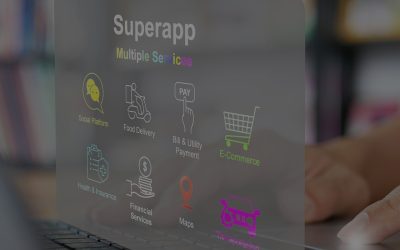Exploring revenue generation from a new ancillary category in travel and hospitality
Revenue from ancillary services is a well-established strategy in the travel and hospitality business. Ancillary revenue in the aviation industry was forecasted to reach $109.5 billion worldwide in 2019 (up from $92.9 billion in 2018).1 Doubtless, this is positive growth. However, it is almost certain that technology is being under-utilized to generate ancillary revenue and the opportunity could be larger than $109.5 billion.
Let’s examine the ancillary revenue of Spirit Airlines, a leading ULCC (Ultra Low Cost Carriers) (see Figure 1). Its ancillary revenue is 47% of total operating revenue. If we classify ancillary revenue into two categories –need-based and experience-based—it is evident that most ancillary revenue for Spirit is from need-based ancillaries such as baggage and assigned seats.

Figure 1: Spirit Airlines2
This leaves a large opportunity in experience-based ancillary offerings, especially for LCC (Low Cost Carriers) and ULCC, where most services are un-bundled. However the trend, even in FSC (Full Service Carrier), is to move towards becoming a LCC. This is evident from the fact that several global FSC are now charging for seat allocations.
With the availability of customer data and the evolution of analytical technologies and models, we believe that experience-based ancillary can add substantially to bottom lines in the travel and hospitality industry.
It is practically impossible for an airline or a hotel to influence demand for need-based ancillaries. However businesses can use a variety of levers to boost demand for experiences (which can also help improve the loyalty base of a business).
Experience-based revenue would come from an in-depth understanding of the customer. There are many initiatives being taken to create a 360 degree view of the customer to boost sales. But the problem is that the 360 degree view alone may no longer be adequate in today’s dynamic digital era.
A 360 degree view is a starting point. True maturity is when we build a 720 degree view of the customer’s genome. In today’s competitive but interconnected world it is necessary to understand the customer from more than one perspective. Figure 2 shows the various sources of customer data that the travel and hospitality industry could access and the data sciences that can extract customer insights that can lead to experience-based ancillary service.


When we apply Deep Data Science on the various data available to create a customer genome, we gain visibility into the customer’s Context, Preference, Propensity, Affinity, Behavior and Personality. Using this information, businesses need to draw a matrix of Journey Phase and Activities as shown in Figure 3. The matrix exposes opportunities across three primary areas: Customer Delight, Cross Sell-Up Sell and Service Recovery. Each is a key ingredient of successful experience-based ancillary services.
Figure 2: Illustration of Various available data and the data sciences to be applied

Figure 3: A sample matrix between Journey Phase and Activities
Some illustrative examples help understand how this matrix operates. Assume that a customer is fractionally short of a loyalty category upgrade (for example, from Silver to Gold). It is possible to identify this and use the information when the customer requests an early check-in or a late-check out and offer the service free (see Figure 4 for examples of leveraging customer data to improve experience-based ancillary revenue). Or the hotel could provide meeting lounge access or a weekend tour package to such a business customer at a discount.
There is a sound reason to build experience-based ancillary revenue. In a volatile industry like travel and hospitality, fares and room tariffs are subject to change based on competitive pressure, demand, regulatory directives, etc. Increasing the revenue streams from ancillaries that are not affected by these pressures, results in more stable and predictable revenue.
Experience-based ancillaries are also critical in increasing the loyalty base. Consider the example of a hotel guest (see Figure 4) and how business can use data, analytics platforms and business rules to offer Customer Delight, Cross Sell-Up Sell and Service Recovery.

Figure 4: Using data to grow experience-based ancillary revenue and boost loyalty
The Customer Experience Management (CEM) platform, which forms the middle layer, analyses the customer needs in context and maps it to historical data in real time and generates/offers the right experience to the guest. In this example the hotel has not only generated ancillary revenue but has also provided experiences that help elevate the customer higher in the loyalty value chain.
Need-based ancillary revenue will, inevitably, begin to plateau as supply of most ancillary services is finite. However, experience-based services can continue to expand and grow, depending on the ingenuity of the business.











